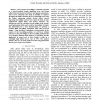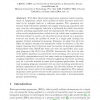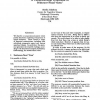11 search results - page 2 / 3 » Calling SNPs without a reference sequence |
DEXAW
2003
IEEE
13 years 10 months ago
2003
IEEE
An essential problem for biologists is the processing and evaluation of BLAST results. We advocate the deployment of database technology and describe a userdriven tool, called Bla...
RECOMB
2012
Springer
11 years 7 months ago
2012
Springer
We develop a novel and general approach to estimating the accuracy of protein multiple sequence alignments without knowledge of a reference alignment, and use our approach to addre...
CIBCB
2006
IEEE
13 years 11 months ago
2006
IEEE
— DNA sequence basecalling is commonly regarded as a solved problem, despite significant error rates being reflected in inaccuracies in databases and genome annotations. These er...
WABI
2009
Springer
13 years 11 months ago
2009
Springer
Abstract. With Next Generation Sequencers, sequence based transcriptomic or epigenomic assays yield millions of short sequence reads that need to be mapped back on a reference geno...
EACL
1993
ACL Anthology
13 years 6 months ago
1993
ACL Anthology
We describe a computational system which parses discourses consisting of sequences of simple sentences. These contain a range of temporal constructions, including time adverbials,...



